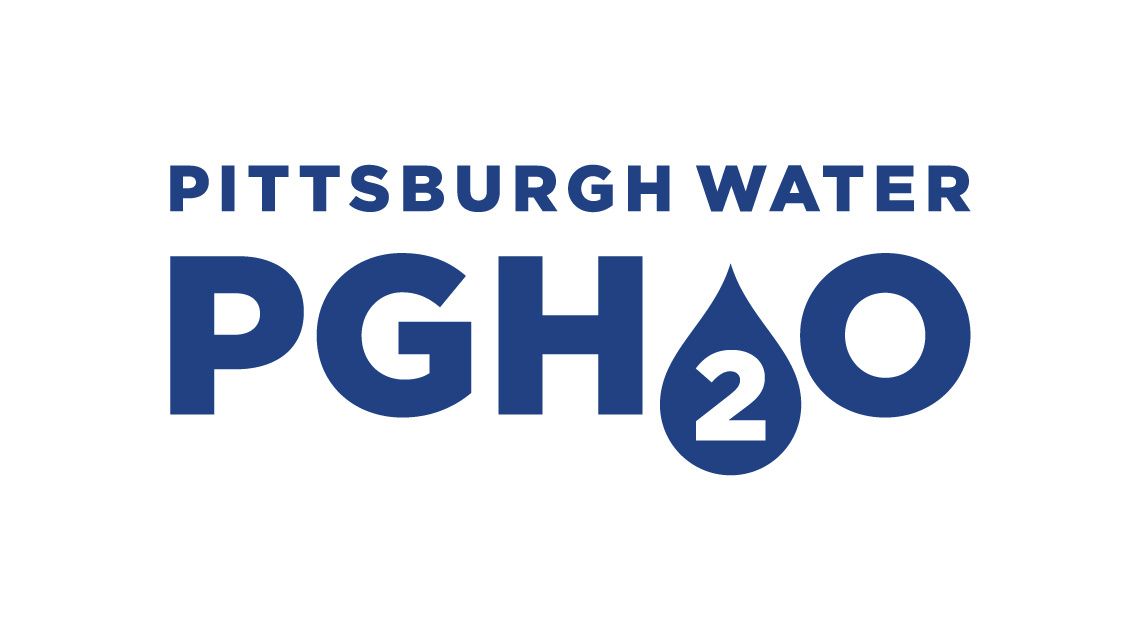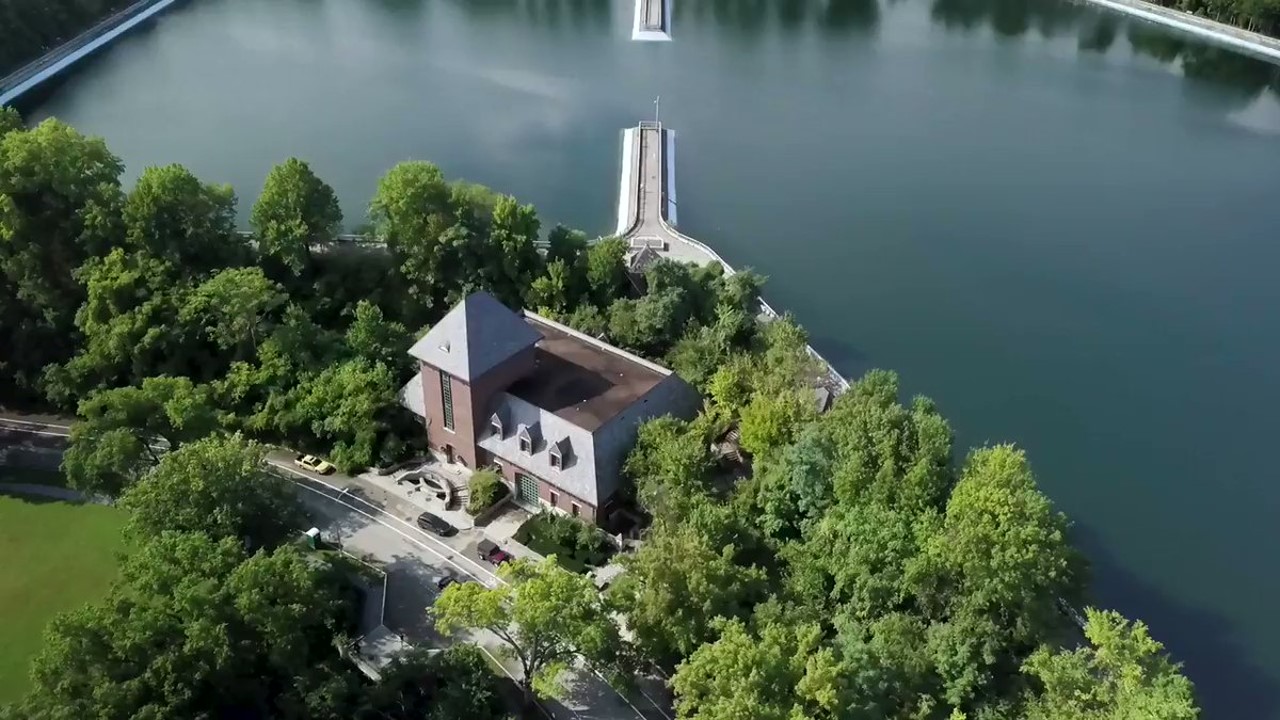Learn about Pittsburgh Water including our Environmental Compliance, News & Press Releases, Projects, and Team.
Talk to us
Have questions? Reach out to us directly.
Learn about Pittsburgh Water including our Environmental Compliance, News & Press Releases, Projects, and Team.
About Pittsburgh Water
- Debt Outstanding as of 12/31/2024
- $1,248,379
- Bond Ratings
- A2/A+
- Created In
- 1984
Pittsburgh Water is the largest combined water and sewer authority in Pennsylvania. It provides water, sewer, and stormwater management services to more than 300,000 customers throughout the City of Pittsburgh and the surrounding areas.
Water
The drinking water system contains approximately 965 miles of water lines, over 32,000 valves and hydrants, 1 raw water pump station, 10 finished water pump stations, 4 finished water reservoirs, 1 source water reservoir reservoirs, and 11 tanks. Pittsburgh Water provides water to the Borough of Millvale and approximately 84% of the total population in the geographic boundary of the City of Pittsburgh. In addition, Pittsbrugh Water provides bulk water services to Reserve Township, Fox Chapel Borough, and the Borough of Aspinwall, along with being interconnected to several other regional water systems for emergency purposes.
The water distribution system is a vast, complex network that was designed to take advantage of Pittsburgh unique geography. Gravity, along with the help of pump stations, reservoirs, and tanks, moves water throughout Pittsburgh’s hills and valleys.
Sewer
The sewer system includes 1,242 miles of sewer lines and approximately 25,000 catch basin and inlets. Approximately 73% of the sewer system is a combined system meaning that stormwater and wastewater flow through the same pipe. The remaining 27% is a separated system, which means that wastewater flows through one pipe and stormwater flows through another. Pittsburgh Water sends all wastewater to the Allegheny County Sanitary Authority (“ALCOSAN”) wastewater treatment plant, which is not part of the Pittsburgh Water system. ALCOSAN treats wastewater for the 83 municipalities in Allegheny County, including the City of Pittsburgh.
Stormwater
As heavier and more intense rains are overwhelming Pittsburgh Water’s sewer system, stormwater management is a growing concern throughout Pittsburgh. To solve the problem, Pittsburgh Water is taking a more deliberate approach about the way it is managed across the region.
Rather than directing all that extra water into a network of pipes, we are distributing the collection of rainwater into a series of stormwater infrastructure projects across the city. This distributed approach will help to capture, absorb, hold back, and slow the flow of stormwater.
These methods use a combination of green and gray infrastructure and integrate into the natural environment. It is a cost-effective approach that will help to create safe, flood-prepared neighborhoods. Pittsburgh Water currently maintains 3 sanitary sewer overflow structures, 146 combined sewer overflow outfall structures, 46 combined sewer overflow outfall structure co-permitted with ALCOSAN, and 254 separate storm sewer outfalls in the Municipal Separate Storm Sewer System.
Environmental Compliance
Please see the below information regarding Pittsburgh Water & Sewer Authority’s environmental compliance.
News
Pittsburgh, PA - Today, Pittsburgh Water gathered with elected officials, community leaders, and representatives from labor and professional organizations to officially launch the ABC Project — a transformative initiative and cornerstone of the Authority’s Water Reliability Plan. The official kick-off of this $193 million multi-year construction investment comes as the result of a years-long process of planning, strategizing, careful design, and permitting, intricately sequenced to ensure consistent service for Pittsburgh Water customers.
The ABC Project - named for its three major components, the Aspinwall Pump Station, Bruecken Pump Station, and the Clearwell Bypass - will modernize critical elements of Pittsburgh’s drinking water treatment and distribution system. Once complete, the project will significantly improve the reliability, safety, and resilience of water service for hundreds of thousands of residents.
“Today’s groundbreaking is more than a ceremonial milestone. It represents our commitment to delivering safe, reliable water to Pittsburghers for generations to come,” said Pittsburgh Water CEO Will Pickering. “This project would not be possible without the dedicated team and stakeholders behind it. Through strategic investment, meticulous planning, and strong partnerships across public and private sectors, we’re breaking ground on the most ambitious project Pittsburgh Water has undertaken since our distribution system was installed more than a century ago.”
At today’s event Congresswoman Summer Lee, Mayor Ed Gainey, PENNVEST Executive Director Robert Boos, and Secretary, Treasurer of Pittsburgh Building Trades Tom Platt, joined Pittsburgh Water CEO Will Pickering and Chief of Engineering Rachael Beam at the podium.
Among the audience, more than 20 representatives from labor unions and the building trades stood in solidarity and were recognized for their role in bringing this project to life. Others from the project team also attending include Mascaro Construction CEO John Mascaro, Jr., Michael Baker International CEO Brian Lutes, and representatives from the design engineer firm Brown and Caldwell also attended.
Celebrating this milestone with the Authority includes Pittsburgh Water’s board of directors, State Senator Lindsey Williams, State Representative Lindsay Powell, and Laura Sohinki, Southwest Regional Director with Governor Shapiro’s Office, as well as numerous stakeholders and community representatives who work closely with Pittsburgh Water.
“The ABC Project is more than an infrastructure upgrade — it’s a commitment to equity, public health, and environmental justice,” said Congresswoman Summer Lee. “For too long, underserved communities have lived with aging water systems. This project is a promise that every family, no matter their zip code, deserves clean, reliable water.”
ABC Project Details
Aspinwall Pump Station Renovation
This historic facility will undergo a comprehensive overhaul, including the replacement of pumps, motors, switchgear, and piping. A new chemical building will be constructed to replace the existing fluoride building. Stormwater improvements and architectural preservation efforts will ensure the building’s historic character is maintained while enhancing its operational performance.
Bruecken Pump Station Replacement
The aging Bruecken facility will be replaced with a new, three-story, energy-efficient building designed to house modern pumps, large-diameter piping, and advanced electrical and control systems. The new station will include upgraded lighting, HVAC, plumbing, fire suppression, and security systems, ensuring long-term reliability and support for future growth.
Clearwell Bypass Installation
A new bypass system will be constructed to allow Pittsburgh Water to take the Clearwell—an essential 44-million-gallon underground disinfection basin—offline for full replacement in the near future as the capstone project of the Water Reliability Plan. The bypass includes 144-inch and 84-inch diameter pipes, an overflow structure, and three bypass vaults, all designed to maintain water quality and service continuity during the Clearwell’s reconstruction.
“This project is the result of years of planning, engineering, and collaboration — and it’s a major step forward in modernizing our water system,” said Pittsburgh Water’s Chief Engineering Officer Rachael Beam. “Once complete, the improvements at our Aspinwall Pump Station, replacement of the Bruecken Pump Station, and construction of the Clearwell Bypass will work together to enhance system reliability, improve water quality, and increase operational flexibility as we work toward completing the remaining steps of our expansive Water Reliability Plan.”.
Looking Ahead
Construction is expected to continue through 2029. The project is forecasted to generate more than 1,300 jobs and stimulate nearly $300 million in regional economic output. Funding includes $248 million in low-interest loans from state and federal partners, helping to reduce long-term costs for ratepayers.
“Major infrastructure improvements like the ABC Project put skilled tradespeople to work and create real opportunities for local workers,” said Tom Platt Secretary, Treasurer of Pittsburgh Building Trades. “We’re proud to be part of building something that will serve Pittsburgh for decades to come, and we appreciate the commitment from Pittsburgh Water and the Commonwealth to invest in union labor and family-sustaining jobs.”
“This project is a win for Pittsburgh and a win for Pennsylvania. It’s going to create good-paying jobs, strengthen our economy, and ensure that families and businesses have access to safe, reliable water for generations to come,” said PENNVEST Executive Director Robert Boos. “Through state-level support from PENNVEST, we’re helping to get critical infrastructure projects like this across the finish line while keeping costs down for ratepayers. This is what smart, equitable investment looks like.”
The ABC Project is a key phase of the $470 million Water Reliability Plan, laying the groundwork for this multi-year initiative to modernize Pittsburgh’s water system and ensure uninterrupted service during future upgrades, including the full replacement of the Clearwell.
"The ABC Project is a powerful example of what’s possible when we invest in our people and our neighborhoods,” said Pittsburgh Mayor Ed Gainey. "Reliable water service is a basic necessity, and this project ensures that every Pittsburgher, no matter where they live, can count on safe, clean water. I’m grateful to see Pittsburgh Water advancing infrastructure that not only creates jobs and strengthens communities, but also builds a more equitable future for all of us.”
To learn more about the Water Reliability Plan, visit pgh2o.com/WRP. For information on contracting and business opportunities, visit pgh2o.com/doing-business.
Pittsburgh, PA - Pittsburgh Water has achieved a historic milestone in water quality, certifying a lead level of 2.0 parts per billion (ppb) in its latest round of water testing — the lowest amount of lead ever recorded by Pittsburgh Water.
This latest result, certified by the Pennsylvania Department of Environmental Protection, comes from the most recent round of compliance testing conducted in accordance with the United States Environmental Protection Agency (EPA)’s Lead and Copper Rule Revisions. This result is significantly below the 15 ppb federal action level set by the EPA, underscoring the success of Pittsburgh Water’s highly-effective water treatment process, including the 2019 addition of the food-grade additive orthophosphate. This safe and effective corrosion control method forms a protective barrier that minimizes the potential for lead to enter tap water, even in homes that still have lead service lines. The testing for this record-low result included samples from homes confirmed to have lead service lines, providing a clear picture of the system’s performance, even in high-risk areas.
“Achieving a result of 2.0 ppb is not only a testament to the success of our nationally recognized Community Lead Response, but also a reflection of the commitment and devotion our team has shown to delivering safe, clean drinking water to every customer we serve,” said Pittsburgh Water CEO Will Pickering.
Pittsburgh Water has dramatically improved drinking water quality and safety in recent years. In addition to improving its water treatment practices, Pittsburgh Water has been aggressively focused on replacing lead service lines throughout their service area. Since launching their Community Lead Response in 2016, Pittsburgh Water has replaced more than 13,500 public-side lead service lines and more than 10,000 private ones at no direct cost to ratepayers. The utility remains on pace to replace every residential lead line in its service area by the end of 2027, years ahead of many comparable American cities facing similar issues. Pittsburgh Water’s lead service line replacement program has served as a national model, with dozens of organizations and water utilities from across the country consulting with them to plan their own lead removal initiatives.
“We’ve made tremendous progress, but our work isn’t done,” Pickering said. “We remain focused on replacing the remaining lead lines and ensuring every Pittsburgh resident has access to safe, high-quality water.” Pittsburgh Water encourages customers to learn more about lead in drinking water, request free lead test kits, and explore resources available at pgh2o.com/lead.
Pittsburgh, PA — Today, Pittsburgh Water begins constructing the Woods Run stormwater improvements in Riverview Park, a project that reinforces the utility’s commitment to sustainability and neighborhood resiliency. This continued investment in green infrastructure represents more than just a flood prevention effort; it will also protect local waterways, public health, and the environment, while incorporating features that enhance the natural beauty of the park.
Located in the northern section of Riverview Park, this project builds on years of coordinated planning and community engagement. It will incorporate green stormwater infrastructure to capture runoff, stabilize stream channels, and more slowly release stormwater back into the combined sewer system, reducing erosion, park flooding, and combined sewer overflows to the Ohio River. Restoration of the streams within Riverview Park and installation of a rain garden near the Mairdale Avenue entrance will enhance the aesthetics of the park while providing effective stormwater management to reduce neighborhood flooding. Following a strategic removal of trees to complete the construction, around 3,000 new tree plantings will further increase rainwater capture and support reforestation efforts. Several trails will also be improved and restored.
“This project represents the best of what green infrastructure can achieve,” said Pittsburgh Water CEO Will Pickering, "That is, protecting our waterways, improving water quality, and enhancing the natural beauty that makes Riverview Park so special. We’re excited about the lasting improvements this project will provide that benefit both residents and the environment.”
Construction begins this October and will continue through 2026, with periodic trail and parking lot closures and temporary traffic control measures, including flaggers. The construction, estimated to cost $4,239,585 with support from the ALCOSAN GROW Grant Program and the Pennsylvania Department of Community and Economic Development (DCED), will culminate in a revitalized, stormwater-friendly Riverview Park that residents and visitors can enjoy for generations to come. The DCED funding plays an important role, reimbursing aesthetic park enhancements that Pittsburgh Water cannot typically fund with ratepayer dollars. These enhancements include improvements to the design of the park entrance, landscaping other than raingardens, the addition of benches and trash receptacles, trail enhancement, and other community-driven improvements.
“Friends of Riverview Park is thrilled to see construction begin on this dynamic stormwater project,” said Mark Masterson, Chairperson of Friends of Riverview Park. “This infrastructure investment will improve neighborhood resiliency and the community experience while protecting the park’s natural environment. It reflects what’s possible through our partnership between Pittsburgh Water and the community to preserve and enhance one of our city’s most treasured green spaces.”
Infrastructure and Park Enhancements Include:
- Stormwater infrastructure improvements
- Stream restoration and stabilization
- Rain garden installation
- Wall construction
- Trail restoration and upgrades
- Trailhead parking lot improvements
- Reforestation and landscape enhancements
- Concrete curb and sidewalk replacement
How Do these Green Infrastructure Components Help?
Rain Gardens and Stormwater Systems in Action
When rain falls on impervious surfaces like roads, parking lots, and rooftops, it picks up contaminants such as oil, heavy metals, nutrients, and pathogens. Green infrastructure like rain gardens, bioswales, and active stormwater retention captures and filters this runoff, preventing pollutants from reaching waterways. This infrastructure also mimics natural processes that increase infiltration. By allowing water to soak into the ground, groundwater is recharged and water levels maintain their baseline.
Stabilizing Streams to Prevent Erosion and Sediment Pollution
Uncontrolled stormwater can move very quickly, scouring streambanks and leading to sediments being flushed into waterways. Green infrastructure slows down water flow and stabilizes channels, reducing erosion and protecting aquatic habitats.
Slow Sewer Release Reduces Overflows and Pollution
Harmful sewer overflows occur when the combined sewer system, which conveys both wastewater and stormwater, becomes overwhelmed by a rapid influx of stormwater. This can cause combined sewage and runoff to overflow and enter waterways like the Ohio River. These combined sewer overflows (CSOs) occur during wet weather, negatively impacting the overall health of local waterways. By controlling the rate and volume of runoff, green infrastructure, such as the components planned for Riverview Park, can improve water quality and the environment by lessening the burden on the sewer system, preventing excessive overflows to waterways.
Projects
Team
Talk to us
Have questions? Reach out to us directly.




